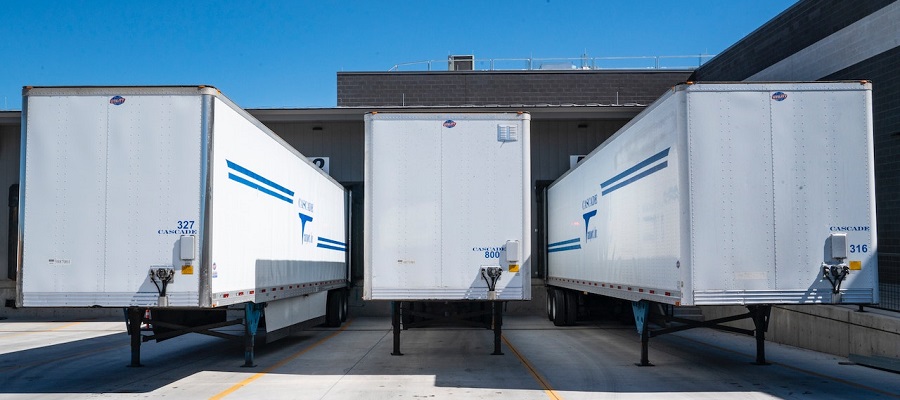Grocery wholesalers play a critical role in the distribution of food and other products to retail stores and other businesses. Many businesses rely on bulk grocery supplies from wholesalers in order to meet their needs and keep their operations running smoothly. In this article, we'll explore the various factors that businesses should consider when purchasing bulk grocery supplies from wholesalers.
Product Selection
Product selection is an important consideration for businesses when purchasing bulk grocery supplies. Grocery wholesalers typically offer a wide range of products, including fresh produce, meats, dairy products, baked goods, and non-food items such as paper goods and cleaning supplies. In this article, we'll explore some of the key factors that businesses should consider when evaluating the product selection offered by a grocery wholesaler.
"Product Quality"
One of the most important factors to consider when evaluating product selection is product quality. Businesses rely on bulk grocery supplies to meet the needs of their customers and to keep their operations running smoothly. If the products are of poor quality, it can have a negative impact on the business.
To ensure that they are getting high-quality products, businesses should look for grocery wholesalers that have a reputation for offering good quality products. This may involve looking at reviews or ratings from other businesses, or visiting the wholesaler's store or warehouse to see the products in person.
"Product Variety"
Another important factor to consider when evaluating product selection is variety. Businesses may have specific needs or preferences when it comes to the types of products that they require. For example, a restaurant may need a wide range of fresh produce and meats in order to prepare a diverse menu, while a retail store may need a variety of non-food items such as paper goods and cleaning supplies.
It's important for businesses to choose a grocery wholesaler that can meet their specific needs in terms of product variety. This may involve looking for a wholesaler that offers a wide range of products, or that is willing to source specific items on request.
"Product Availability"
Product availability is another important factor to consider when evaluating product selection. Businesses rely on a consistent supply of products in order to keep their operations running smoothly. If a grocery wholesaler is unable to consistently provide the products that a business needs, it can cause disruptions and lead to lost sales.
To ensure that they have a reliable supply of products, businesses should look for a grocery wholesaler that has a good track record of availability. This may involve looking at the wholesaler's inventory management systems, or inquiring about their ability to source products on short notice.
Pricing
Pricing is another important consideration for businesses when purchasing bulk grocery supplies. Grocery wholesalers typically offer bulk pricing discounts for larger orders, which can be a cost-effective option for businesses.
However, it's important for businesses to carefully compare prices from different wholesalers in order to ensure that they are getting the best value for their money. Businesses should also consider any additional fees or charges that may be associated with bulk orders, such as delivery fees or handling charges.
Delivery and Pickup Options
Delivery and pickup options are another important consideration for businesses when purchasing bulk grocery supplies. Grocery wholesalers may offer a variety of delivery options, such as home delivery, pickup at the store, or pickup at a designated location.
The type of delivery option that a business chooses will depend on factors such as the size and location of the business, as well as the availability of storage and transportation resources. Businesses should carefully evaluate the delivery options offered by a grocery wholesaler to ensure that they meet their needs.
Payment Options
Payment options are an important consideration for businesses when purchasing bulk grocery supplies. Grocery wholesalers typically offer a range of payment options, such as cash, check, credit card, or electronic payment. In this article, we'll explore some of the key factors that businesses should consider when evaluating the payment options offered by a grocery wholesaler.
"Payment Methods"
One of the key factors to consider when evaluating payment options is the types of payment methods that are accepted by the grocery wholesaler. Some businesses may prefer to pay with cash, while others may prefer to use a credit card or electronic payment methods such as a debit card or electronic check.
It's important for businesses to choose a grocery wholesaler that offers payment methods that are convenient and secure. This may involve looking for a wholesaler that accepts multiple payment methods, or that has a secure online payment system.
"Payment Terms"
Payment terms are another important factor to consider when evaluating payment options. Grocery wholesalers may have different terms for payment, such as requiring payment at the time of purchase, offering payment plans, or requiring payment in advance.
It's important for businesses to choose a grocery wholesaler that offers payment terms that are compatible with their needs. For example, a business may prefer to pay in advance in order to take advantage of discounts, or may require a payment plan in order to manage their cash flow.
"Additional Fees and Charges"
Additional fees and charges are another important factor to consider when evaluating payment options. Grocery wholesalers may charge fees for services such as delivery, handling, or processing payment.
It's important for businesses to carefully review any fees and charges that may be associated with payment in order to ensure that they are getting the best value for their money. This may involve comparing fees and charges from different wholesalers, or negotiating with the wholesaler to reduce or eliminate certain fees.


